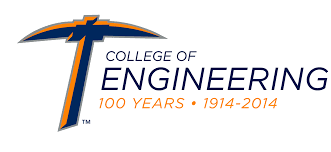
Texas A&M Transportation Institute (TTI) is one of the largest university-based transportation research agencies in the United States. Established in 1950, TTI has a breadth and depth of programs, facilities, and capabilities unsurpassed by any other higher-education affiliated transportation research organization in the U.S. TTI has 27 years of experience in managing UTC consortia, at the national and regional levels. TTI’s Environment and Air Quality Division leads the CARTEEH program and consists of three research programs that together cover research into transportation, air quality, and sustainability.

Johns Hopkins University (JHU) is consistently ranked as the leading educational institution in the area of public health. JHU Bloomberg School of Public Health (JHSPH) is the first independent, degree-granting institution for research and training in health, and the largest health training facility in the United States. JHSPH is a leading international authority on the improvement of health and prevention of disease and disability. The School’s mission is to protect populations from illness and injury by pioneering new research, deploying its knowledge and expertise in the field, and educating scientists and practitioners in the global defense of human life.
The Georgia Institute of Technology (GT) is one of the nation’s leading science and technology oriented universities and conducts more than $700 million in sponsored research annually. For over a decade, GT has remained in the top 10 public universities in the United States. GT has several years of leading successful UTC consortia.

The UTEP team conducts transportation-related air pollution research in the U.S.- Mexico border region with a focused mission – to improve air quality and public health in the underserved communities. The team has built a strong partnership with state agencies, local governments (including the Ysleta del Sur Pueblo, a Native American sovereign entity; and the Mexico sister city, Ciudad Juarez of Chihuahua, Mexico), school districts, and residents of the communities on both sides of the border. The team is experienced in ambient and personal air monitoring, instrumentation, and data analysis. The air quality research laboratory is well equipped with a number of PM and vapor monitors including dichotomous PM monitors, R & P TEOM PM monitors with ACCU assembly, different types of personal air monitors, and cascade impactors. The group possesses two mobile air monitoring stations that are equipped with an erectable 10-m meteorological tower and state-of-the-art PM and VOC characterization instruments including Aerodynamic Particle Sizer, Scanning Mobility Particle Sizer Spectrometer, BETX monitor, ozone continuous monitor, Total Hydrocarbon Monitor, and NOx monitor. The air quality laboratory at UTEP houses a gravimetric weighing room with two 6-digit microbalances, a Digital Smoke Stain Reflectometer, and many networked computers. The team has collaborated closely with chemistry laboratories within and outside UTEP in many chemical characterization studies.
UCR’s College of Engineering – Center for Environmental Research and Technology (CE-CERT) is renowned for its cutting edge research towards achieving environmental sustainability, from working to understand how emissions impact air quality to developing technologies needed to mitigate those impacts and protect public health. UCR’s CE-CERT brings to CARTEEH its strong expertise in the measurement and modeling of transportation emissions and energy consumption. With its suite of state-of-the-art facilities, from light-duty and heavy-duty chassis dynamometers to portable emission and activity measurement systems to advanced traffic and driving simulators, CE-CERT researchers have conducted numerous research focused on how advancements in vehicle, engine, and fuel technologies, as well as the emerging connected and automated vehicle technologies, affect transportation emissions and energy.
In 2016, CE-CERT launched the Sustainable Freight Research Initiative that focuses on improving environmental sustainability at multimodal freight facilities and along freight corridors. Research undertaken under this initiative, which are complementary to the goals of CARTEEH, has included collecting real-world vehicle and engine activity data of heavy-duty diesel vehicles, measuring emission performance of battery electric/plug-in hybrid electric and compressed natural gas trucks, developing connected vehicle applications for heavy-duty trucks, modeling exposure to traffic-related air pollution by residents near multimodal freight facilities, among others.
Morehouse School of Medicine (MSM), located in Atlanta, Ga., was founded in 1975 as the Medical Education Program at Morehouse College. In 1981, MSM became an independently chartered institution. MSM is among the nation’s leading educators of primary care physicians and was recently recognized as the top institution among U.S. medical schools for our social mission. Our faculty and alumni are noted in their fields for excellence in teaching, research and public policy.
North Dakota State University (NDSU) makes an exceptional education accessible. NDSU is the converging point for smart and curious minds from all over the world. Together, scientists, athletes, entrepreneurs, inventors and artists take on a world poised for breakthroughs. NDSU is an R1 research institution, the highest Carnegie Classification of Institutions of Higher Education honor presented only to the top research institutions in the country.






